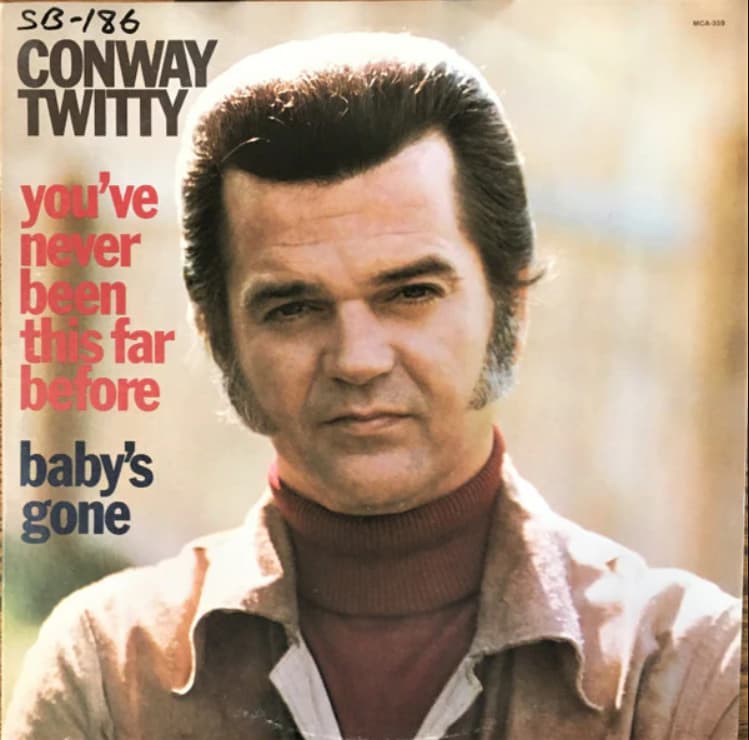
An intimate moment of temptation and confession on the edge of a new emotional frontier.
There are songs that simply fade into the background, and then there are the ones that spark a fire, stirring up both passion and controversy in equal measure. Conway Twitty’s 1973 smash, “You’ve Never Been This Far Before,” belongs firmly in the latter camp. It’s a track that instantly transports those of us who remember its initial release back to a time when country music, often perceived as the most wholesome of genres, dared to whisper about bedroom secrets with a surprising, yet artful, sensuality.
Released in July 1973 as the title track and second single from the album “You’ve Never Been This Far Before,” this song wasn’t just a hit—it was an event. It quickly ascended to the pinnacle of the charts, becoming Twitty’s tenth number one on the Billboard Hot Country Songs chart, where it held the top spot for a glorious three-week run. What’s perhaps even more remarkable for a country song of that era is its crossover success: it peaked at number 22 on the all-genre Billboard Hot 100, making it Twitty’s only single to break the Top 40 on the pop chart after his transition from rock and roll. This dual-chart dominance speaks volumes about the song’s magnetic pull, transcending typical genre boundaries.
Yet, its success was hard-won. The track generated a significant public outcry, deemed by some radio programmers and more conservative listeners to be too sexually suggestive. Certain disk jockeys flat-out refused to play it, finding lines like “as my trembling fingers touch forbidden places” and the intense atmosphere created by Twitty’s signature low, spoken-word delivery and the evocative “bum bum bum” refrain too risqué for the airwaves. This controversy, however, likely only fueled its popularity, turning a simple country ballad into a forbidden fruit that listeners simply had to hear.
The true meaning of the song, which Twitty himself wrote, is often misunderstood. While its suggestive lyrics led many to believe it was about the loss of virginity, the context, particularly the lines “I don’t know and I don’t care what made you tell him you don’t love him anymore,” reveals a more complex narrative. “You’ve Never Been This Far Before” is, at its heart, about a married woman stepping outside her marital vows for the very first time. It captures the charged, nervous energy of two people standing at a precipice—one an experienced seducer, the other a woman trembling with guilt, fear, and desire as she ventures into an emotional and physical space she has never dared to enter.
Twitty, the master of the country-fried slow jam, delivers the lyric not with a boastful swagger, but with an almost paternal, comforting tenderness, acknowledging her vulnerability while guiding her further into the moment. The song is a delicate, often creepy, blend of reassurance and temptation, reflecting the turbulent emotional landscape of the early 1970s, a time when traditional boundaries were being tested, and new personal freedoms—and corresponding guilt—were being explored. For those of us who came of age during that era, the song is a vivid time capsule, a reminder of the subtle, suggestive way romance and transgression were once whispered about over the radio waves. It’s a classic that proves that sometimes, the most enduring music is the kind that makes you blush just a little.